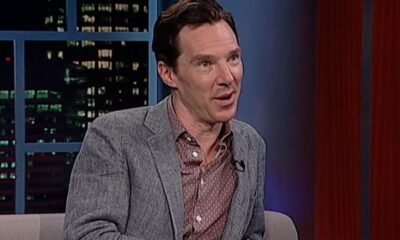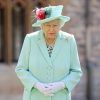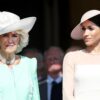All round
Prince Harry and Meghan Markle’s constant discussion of the royal family may lead to a decline in their popularity and financial success, according to Vanity Fair royal correspondent Katie Nicholl.
Nicholl expressed concern that audiences will grow tired of the couple’s focus on the royal family and mental health issues, urging them to shift their attention elsewhere.
Despite their popularity in the United States, recent comments made by the Duke and Duchess of Sussex regarding the First Amendment and their emphasis on mental health could potentially alienate their fans.
During an interview on the Armchair Expert podcast hosted by Dax Shepard, Prince Harry opened up about his strained relationship with his father, Prince Charles.
He revealed that his father’s trauma had been passed down to him, attributing it to the upbringing provided by Prince Philip and the Queen.
The prince also shared his struggles with mental health, disclosing his desire to leave the royal family at the young age of 20.
Trending:
In describing his experience, he likened being a royal to living in a zoo.
Katie Nicholl, along with other royal reporters, discussed Prince Harry’s revelations on the Royal Beat podcast.
Nicholl questioned the extent to which the public would continue to engage with the couple’s discussions on this subject, wondering if they had exhausted the topic.
She anticipated that even in America, where the couple’s words are closely followed, people might express a desire for them to change their narrative.
Rob Jobson, the Evening Standard royal editor, criticized Prince Harry’s continuous attacks on the royal family during Mental Health Week.
He described the prince’s behavior as “pathetic” and expressed disappointment in his refusal to reflect on his own actions.
Instead, Jobson noted, Prince Harry seemed determined to blame others, particularly his father, grandmother, and recently deceased grandfather.
Jobson further questioned the prince’s motives, highlighting his various business ventures such as deals with Spotify and Netflix, his role as a chief impact officer, and his involvement in documentary productions.
He viewed these endeavors as mere money-making exercises.
The article raises the question of whether Prince Harry’s continuous focus on his family and the perceived harm they have caused him is necessary.
While acknowledging the prince’s need to support himself financially, Jobson questioned the appropriateness of repeatedly discussing his grievances.
The sudden emergence of lucrative deals and media projects following his departure from the royal family at the age of 36 led Jobson to believe that Prince Harry and his wife, along with their agents, had strategically capitalized on their experiences to generate significant wealth.
In conclusion, the ongoing discussions by Prince Harry and Meghan Markle about the royal family and mental health may have adverse effects on their popularity and financial success.
Popular Posts:
- Queen’s damning reply to Prince Harry’s ‘what Meghan wants, Meghan gets’ outburst
- Here’s Why Meghan Markle Cannot File Harry Divorce In US
- Meghan Markle ‘escorted out of Prince Charles’ garden party’ in unearthed video
- Here’s Why Meghan Markle Cannot File Harry Divorce In US
- Prince Harry ‘kept asking for more money’ and Prince Charles got ‘fed up’
- Prince Charles ‘deliberately’ left Meghan out of Archie’s birthday message
- Prince Harry and Meghan ‘blamed staff when they didn’t get their way’
- Prince Harry has been ‘brainwashed’, says biographer
- Meghan Markle blogged about Kate’s wedding before claiming she ‘didn’t know much about royals’
- REVENGE: Beatrice’s pregnancy announcement total dig at Meghan Markle
- Damage is done: Prince Harry warned rift with Prince Charles is widening beyond repair
- Meghan Markle Oprah interview claims debunked by own blog post
- Prince Harry faces Backlash for podcast interview, Duke ‘making too much noise’
- Queen and Charles deeply upset with Harry’s rants
- Harry and Meghan are ‘trolling the world’ with hidden photos Archie, says their biographer
- Prince Harry Demands wife Meghan Markle Be Part Of Princess Diana’s 60th Birthday Tribute Or He Won’t Show
- Harry and Meghan are ‘trolling the world’ with hidden photos Archie, says their biographer
- Meghan Markle’s Plastic Surgery
- Meghan and Harry CAN’T do another bombshell interview – ‘Can only do one’
- How Kate Middleton earned the Queen’s respect
- William and Kate prove they are NOT ‘trapped’ despite Harry claims
- Kate Middleton ‘won’t be walked over by Meghan Markle,’ says Jenny Eclair
- Meghan ‘wasn’t too keen’ on living in smaller place than Kate and William after royal wedding
- Meghan Markle was a ‘failure’ in Hollywood, biographer reveals
- Meghan and Harry are trying to start ‘alternate woke Royal Family,’ Expert says



















































